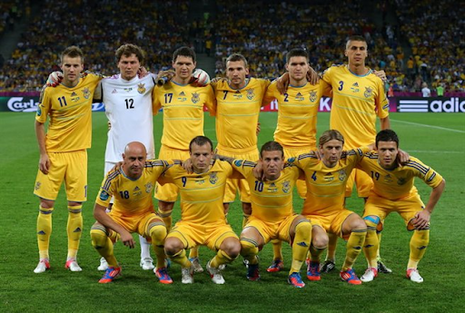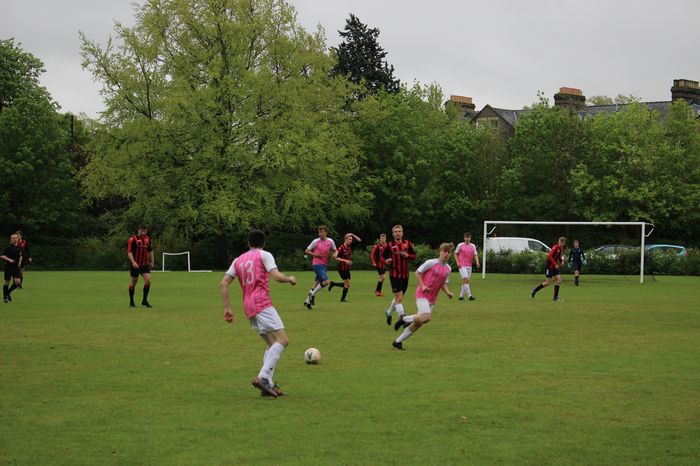Euro 2020 Dark Horses: Ukraine
In the first article of a four-part series leading up to the Euros, which kick off in a month today (11/06), Joseph Hill makes the case for Ukraine as the tournament’s dark horses this year

Dark horse
noun
- a candidate or competitor about whom little is known but who unexpectedly wins or succeeds.
Much of the talk leading up to this summer’s European Championships has centred around the likes of Germany, France, England and Portugal. Varsity over the next four weeks are highlighting some of the sides that haven’t received as much coverage, but are looking strong going into what promises to be an exciting month of football.
“Ukraine, unlike many of the bigger teams at Euro 2020, benefit from a large contingency within the squad playing their domestic football together”
Ukraine are perennial underachievers on the international scene. Having beaten Sweden in their first ever European Championship game in 2012, they proceeded to lose their next two without scoring a single goal. Finishing third in Group D in 2012, and bottom of Group C after three straight defeats without scoring in 2016, they may seem an outside shout even for the moniker of ‘dark horse’. However, their qualifying run for Euro 2020 was extremely impressive, finishing first in a group that contained Portugal and Serbia. Remarkably, they went unbeaten, conceding just four goals in the process. Of the eight games they played, they went on to win six of them, including a momentous victory over Portugal in Kiev in 2019. Given that they failed to qualify for the World Cup in 2018, they are clearly a much improved side heading into this summer’s competition.
Following their ignominious group-stage exit in 2016, Ukrainian legend Andriy Shevchenko replaced Mykhaylo Fomenko as manager. Granted, they failed to qualify for Russia 2018, as well as finishing bottom of their Nations League group, but they have shown signs of being a genuine threat, both in attack and defence. Shevchenko was a controversial appointment at the time, having been parachuted in with no managerial experience whatsoever, but he has been tactically shrewd both in-game and also in terms of selection policy. A clear-out of veterans like Yevhen Seleznyov and Artem Fedetskyi has allowed for Shevchenko to utilise younger talents such as full-back Vitaliy Mykolenko and striker Roman Yaremchuk. As well as home-grown prospects, Ukraine have also profited from the naturalisation of two Brazilian Shakhtar Donetsk players in Junior Moraes and Marlos. Both are exciting talents who add another layer of attacking threat to the Zbirna. Ukraine under Shevchenko combine fast pressing with expansive wide forward play, relying on full-backs to push forward and whip crosses in. The final piece of the puzzle is yet to fully fall into place: in recent years they have lacked a prolific striker. In European qualifying, Roman Yaremchuk top scored with four goals, with five players each scoring one. On the one hand, they still managed to amass 17 goals in qualifying, but on the other they do not have a Harry Kane or a Robert Lewandowski that they can rely on to consistently score.
“Structurally sound with proven quality across the pitch, the Zbirna may cause a few upsets come June”
To those well-versed in Premier League football, Oleksandr Zinchenko should need little introduction. The Manchester City full-back occupies a different role in the Ukrainian set-up, playing as an attack-minded midfielder, usually in a 4-3-3 formation. Similarly, West Ham’s Andriy Yarmolenko is a perennial feature of the Ukraine squad, the wide man getting far more game time than he does at the Hammers. Another internationally-renowned player is Yevhen Konoplyanka, formerly of Sevilla and Schalke 04. Now plying his trade in his native country for Shakhtar Donetsk, the pacey winger has racked up 21 goals in 85 appearances for the Zbirna. In midfield, Atalanta’s Ruslan Malinovskyi has become a mainstay for both club and country. He provides essential cover for the back four, as well as chipping in with the occasional goal. Ukraine, unlike many of the bigger teams at Euro 2020, benefit from a large contingency within the squad playing their domestic football together. For two scheduled friendlies in March (both of which were cancelled), thirteen of the squad played for either Shakhtar Donetsk or Dynamo Kyiv. The fact that much of the team play together for the same clubs is reflected in the cohesion seen on the pitch.
In terms of their prospects at Euro 2020, they’ve been given a relatively kind draw in Group C with Austria, North Macedonia and the Netherlands. North Macedonia did beat Germany in a World Cup qualifier recently, but Ukraine should have enough firepower to comfortably dispatch them. Austria possess a few standout talents, such as Marcel Sabitzer and David Alaba, but I would back Ukraine to overcome them in Bucharest on 21st June. The Netherlands are obviously a tough challenge, but winning two of three would send them through to the round of sixteen. While Ukraine probably won’t win the Euros this summer, they should not be underestimated as a potential quarter-finalist. Structurally sound with proven quality across the pitch, the Zbirna may cause a few upsets come June.
Star Man : Oleksandr Zinchenko
Player to Watch: Ruslan Malinovskyi
Realistic Expectations: Quarter Finals
 News / Clare Hall spent over £500k opposing busway 24 December 2025
News / Clare Hall spent over £500k opposing busway 24 December 2025 Comment / The ‘class’ of Cambridge24 December 2025
Comment / The ‘class’ of Cambridge24 December 2025 News / Caius mourns its tree-mendous loss23 December 2025
News / Caius mourns its tree-mendous loss23 December 2025 Comment / Yes, I’m brown – but I have more important things to say22 December 2025
Comment / Yes, I’m brown – but I have more important things to say22 December 2025 News / Girton JCR publishes open letter expressing solidarity with Palestine25 December 2025
News / Girton JCR publishes open letter expressing solidarity with Palestine25 December 2025











